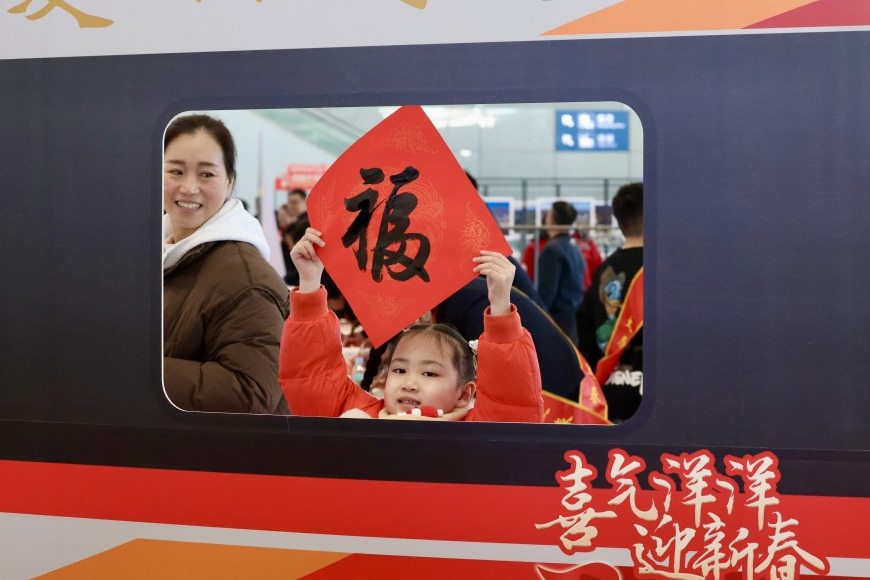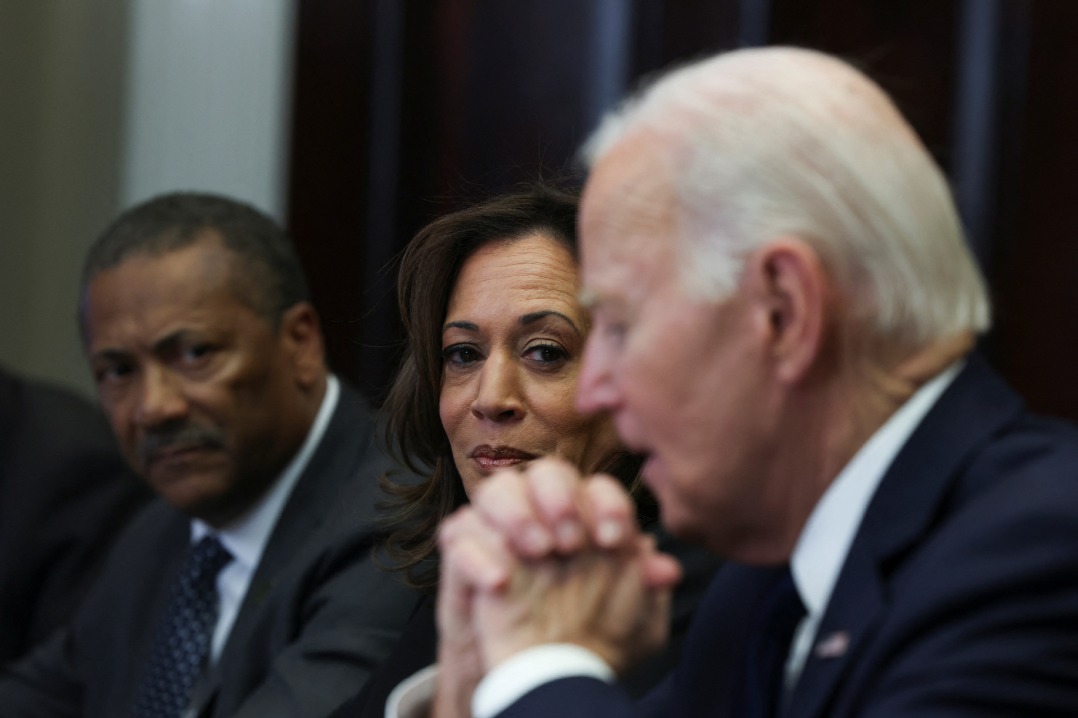Teenagers follow their space dreams to Beijing
By Yan Dongjie | chinadaily.com.cn | Updated: 2017-07-18 17:13
|

|
| Students are divided into small groups to work on their own rocket launcher. [Photo by Yan Dongjie/chinadaily.com.cn] |
More than 40 high school students from eight countries are in Beijing this week, trying to realize their space dreams.
The students from member countries of the Asia-Pacific Space Cooperation Organization, are participating in the "Future Space Homeland" creative design competition.
Since the competition started in March this year, competitors have worked on a detailed design plan for their own inventions that would be needed to set up a new home in space. Finalists were selected to present their ideas.
Warisa Jaidee, a 15-year-old girl from Thailand, won the competition with her "space debris cleanup beetle".
Warisa's beetle is a small satellite is able to communicate with and accept instruction through radio waves. When it finds garbage in space, the "beetle" releases a magnetic network to capture it.
Li Xinjun, secretary general of Asia-Pacific Space Cooperation Organization, said: "Teenagers are the future of science, innovation and the world. This competition aims to stimulate the interest and enthusiasm in space science and aerospace industry of the new generation from all member countries, and create a platform for cultural exchange and idea collision."
The Asia-Pacific Space Cooperation Organization is an intergovernmental organization and has eight member countries; China, Bangladesh, Iran, Mongolia, Pakistan, Peru, Thailand and Turkey. There are also two signatory countries Indonesia and Mexico, while Egypt is expected to join soon.
|

|
| A student from Turkey tries a virtual reality plane flying simulator at Beijing Bayi School. [Photo by Yan Dongjie/chinadaily.com.cn] |
Members of the organization cooperate on space technology and its application projects, such as earth observation, disaster management, environmental protection, satellite communications, navigation and positioning, and space science research, space technology education and training. The competition is the first organized since the establishment of the organization for teenagers to popularize aerospace science knowledge.
The contest and exchange activities were held July 15-21 and organized by the Chinese Society of Astronautics, supported by the Chinese Aerospace Science and Technology Education Alliance and sponsored by Beijing Bayi School.
Wang Yiran, Secretary General of the Society of Astronautics, pointed out that the foreign students participating in this competition are mostly from countries involved in the Belt and Road Initiative.
"In the future, the China Society of Astronautics will organize more such exchange activities for international space culture and technology to make students from other countries understand China through Chinese aerospace, letting Chinese aerospace become a bridge and link for national cooperation and common development of the Belt and Road Initiative," he said.
At the end of 2016, students at the Bayi school received a letter from President Xi Jinping. In the letter, President Xi said he was very proud of the students' achievements and encouraged everyone to continue to study and love science.
Zhu Kai, vice principle of Bayi school in Beijing, said: "Over the past six months, we have actively implemented the spirit conveyed by President Xi's reply, and we hope to be able to gather more teenagers from other countries jointly to discuss science and better practice it, fostering more talents for the human future development of science and technology."
























